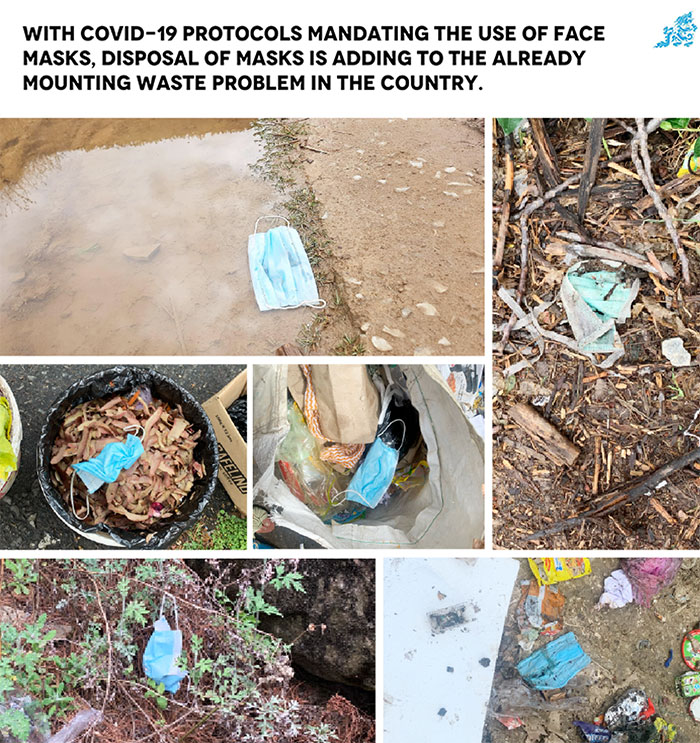Yangyel Lhaden
They are all over – in the drains, bushes, creeks and cracks of walls, by the roadside, up at the landfill at Memelakha and down in the Thimchhu.
Disposable face mask or even cloth mask are adding to the already mounting waste problem in the country. With Covid-19 protocols mandating wearing of face masks, waste from face masks is going to be a problem like in many other countries globally.
Going by the records with pharmacies and shops in Thimphu, most people prefer the disposable surgical face masks over reusable cloth face masks. Kuenphen Pharmacy in Thimphu supplies at least 1,000 surgical face masks to 10 shops in Thimphu thrice a week and sells more than 1,000 surgical face masks from their retail shop daily. Namsey Pharmacy receives at least 50 customers daily to buy surgical face masks. Some customers buy more than two boxes of surgical masks. A box contains 50 surgical face masks.
A sales girl with Namsey Pharmacy said people bought cloth face masks only if the design was attractive.
Almost every shop in the country sells face mask. Small shops in Thimphu sell at least 10 face masks a day. In a month, small shops sell about 300 face masks and in a year about 3,600.
A waste collector in Thimphu said he was scared to segregate waste as face masks were mixed with household waste. “The face mask might be used by a person who had the virus,” he said. He said the government should come up with a guideline on how face masks should be disposed of. “ A separate coloured plastic can be used to dispose of face masks.”
If face mask is cheap, losing or misplacing it is easy forcing people to buy more. Most people Kuensel talked with shared that they lose at least three face masks in a week. If a person uses surgical face mask and loses three face masks in a week. Roughly, he/ she would be buying 90 face masks in a month when he/she requires only 30 face masks in a month. Many said they had lost count of the number of face masks they bought and lost.
Kelden, a civil servant said she would have bought 400 surgical face masks and still has about 100 left. “I change between two and three days depending on my exposure.” Pema Yangzom, a counsellor in Thimphu said though surgical face masks were more secure she preferred cloth face masks as it was easy on the wallet.
Surgical face masks are made of non-biodegradable plastic material mostly polypropylene. A surgical face mask will take about 450 years to decompose. Since surgical face masks are for single-use, they cannot be recycled.
According to one source, it is estimated that each month, 129 billion (B) face masks and 65B gloves are used and disposed of globally.
According to the National Statistics Bureau, the country’s population is 756,129. This means at a time there are at least 756,129 face masks in use assuming that everybody is using a mask.
With the pandemic, the production of face masks worldwide has also surged. The global sales from face masks will total some USD 166B by end of this year from around USD 800M in 2019, according to the United Nations trade body.
In some countries, interest groups are calling on the government to get people to switch from disposable face masks to reusable coverings.


